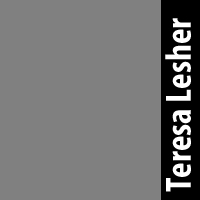
The Quran, which was first revealed in the month of Ramadan, mentions 25 prophets by name, and relates their stories as a guidance for contemporary communities. Through these stories, we see a general pattern of how Almighty God sent various people to warn their communities of the dire consequences of worshipping false gods and committing shameless acts, and the events that transpired when those prophets confronted their people.
Although, according to the Quran, there will be no more prophets after Muhammad (PBUH), we can benefit from his story as well as those of the prophets who came before him. One of the most eminent prophets was Abraham (PBUH), who is mentioned 73 times in the Quran. He rejected the worship of celestial bodies, fire, and all false gods. The Quran says, "When the night covered him over, He saw a star: He said, 'This is my Lord.' But when it set, He said, 'I love not those that set.'
When he saw the moon rising in splendor, he said, 'This is my Lord.' But when the moon set, He said, 'Unless my Lord guide me, I shall surely be among those who go astray.' When he saw the sun rising in splendor, he said, 'This is my Lord; this is the greatest (of all).' But when the sun set, he said, 'O my people! I am indeed free from your (guilt) of giving partners to Allah.
For me, I have set my face, firmly and truly, towards Him Who created the heavens and the earth, and never shall I give partners to Allah'" [6:75-79]. Abraham (PBUH) was a staunch believer and pure monotheist, an example for all people. The Quran says, "And who would be averse to the religion of Abraham except one who makes a fool of himself... When his Lord said to him, 'Submit,' he said, 'I have submitted to the Lord of the worlds." (2:130-131).
Abraham (PBUH) and his son Ishmael (PBUH) build the Kaaba in Makkah, around which Muslims pray until today. Another well-known prophet mentioned in the Quran is Noah (PBUH), who spent his long life calling people to worship the one true God, but whose message was rejected except by a few. He was ordered to build the ark, which resulted in even more ridicule from his people. Finally, God saved him and those with him for their belief from the deluge that destroyed an obstinate, defiant, sinful people.
Other prophets include Jacob, Joseph, David and Solomon, as well as Job, Jonah, and Lot (Peace be unto them), all whose stories are interspersed throughout the Quran. Each had extraordinary gifts or events associated with their names, but the essence of each story is the same: they exclusively worshipped the Creator of the universe, and invited others to share the blessings of the wholesome way of life ordained by God. For their sincerity and persistence, they earned status with God, who has made them examples for all believers to follow.
Jesus the son of the virgin Mary is mentioned 183 times in the Quran in verses that present his story from conception to Resurrection, when he will be asked by God, "Did you say unto men, 'Worship me and my mother as two gods besides Allah?' He will reply, 'Exalted are You! It was not for me to say that to which I have no right.... I said not to them except what You commanded me - to worship Allah, my Lord and your Lord." (5:116-117).
Details of his birth, message to the children of Israel, and ascension to God correct misconceptions that have been passed on for generations. Other prophets mentioned in association with Jesus (PBUH) are his uncle Zachariah (PBUH) and his cousin John (PBUH). Finally, Muhammad, (PBUH), is described in the Quran as "the Messenger of Allah and the seal of the prophets" (33:40).
Although he is mentioned only four times by name, his story is understood by the many verses that are addressed to him, directing him in the many situations that unfolded in his lifetime. From these verses, we follow events that have shaped the Muslim community ever since. But his message was not only for his community in Makkah and Medina. The Quran says, "And We have sent thee not but as a mercy for all peoples" (21:108). If you would like to meet the elite of mankind - the prophets of God mentioned by Him - just pick up a translation of the Quran. You will be in the best of company.
Courtesy of the TIES Center, whose mission is to empower Kuwait's expats through social and educational services that promote a positive and productive role in society, and to facilitate opportunities for intra- and interfaith interactions that promote social solidarity. For more information, please call 25231015/6 or e-mail: [email protected].
By Teresa Lesher



